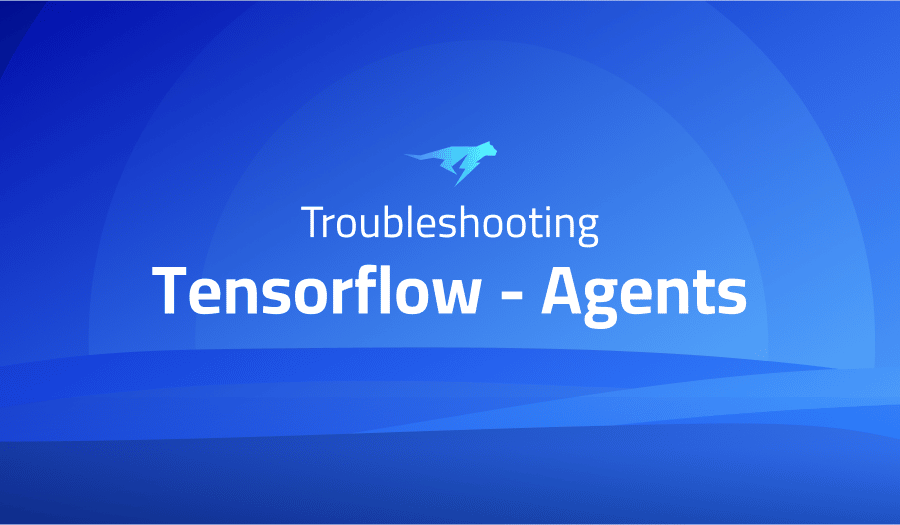

Troubleshooting Common Issues in Tensorflow Agents
Project Description
TensorFlow Agents is a library for training reinforcement learning (RL) agents in TensorFlow. It provides a high-level API for building RL algorithms and environments, and allows you to use TensorFlow to train and evaluate RL models.
TensorFlow Agents includes a number of features that make it easier to develop and deploy RL applications, such as:
- Prebuilt RL environments: TensorFlow Agents includes a collection of prebuilt environments, such as classic control tasks, Atari games, and MuJoCo physics simulations. These environments can be used to train and evaluate RL models out of the box.
- Tools for building custom environments: TensorFlow Agents includes tools for building custom RL environments, such as the
gym_wrapperandtf_envAPIs. - Support for a variety of RL algorithms: TensorFlow Agents includes implementations of popular RL algorithms, such as DQN, A3C, and PPO, as well as tools for building custom algorithms.
- Integration with TensorBoard: TensorFlow Agents includes integration with TensorBoard, allowing you to visualize the training process and monitor the performance of your RL models.
Overall, TensorFlow Agents is a powerful tool for building and training RL models in TensorFlow, and is widely used in the development of RL applications.
Troubleshooting Tensorflow Agents with the Lightrun Developer Observability Platform
Lightrun is a Developer Observability Platform, allowing developers to add telemetry to live applications in real-time, on-demand, and right from the IDE.
- Instantly add logs to, set metrics in, and take snapshots of live applications
- Insights delivered straight to your IDE or CLI
- Works where you do: dev, QA, staging, CI/CD, and production
Start for free today
The following issues are the most popular issues regarding this project:
AttributeError: ‘NoneType’ object has no attribute ‘dumps’ for tf_py_environment
This error is typically caused by the tf_py_environment object being None, which can occur if the object was not properly initialized or if it was not properly passed to the function or code where it is being used.
To resolve this issue, you will need to ensure that the tf_py_environment object is properly initialized and passed to the function or code where it is being used. Here are a few things you can try:
- Check the initialization of the
tf_py_environmentobject: Make sure that thetf_py_environmentobject is being correctly initialized and that all required parameters are being passed to the constructor. - Check the function or code that is using the
tf_py_environmentobject: Make sure that thetf_py_environmentobject is being correctly passed to the function or code where it is being used, and that it is not being modified or overwritten in any way. - Check for any other issues in your code: Make sure that there are no other issues or errors in your code that could be causing the
tf_py_environmentobject to beNone.
More issues from Tensorflow repos
It’s Really not that Complicated.
You can actually understand what’s going on inside your live applications.




